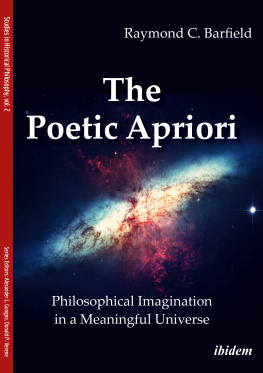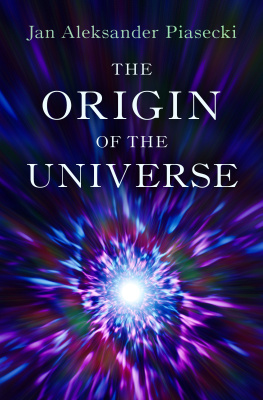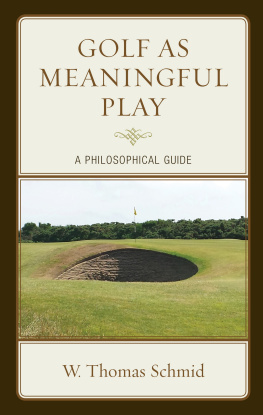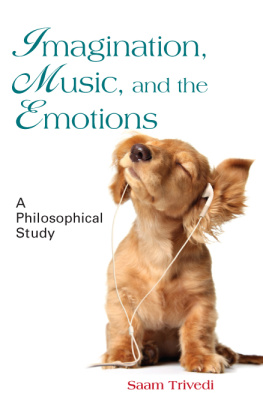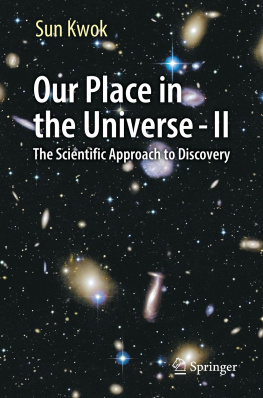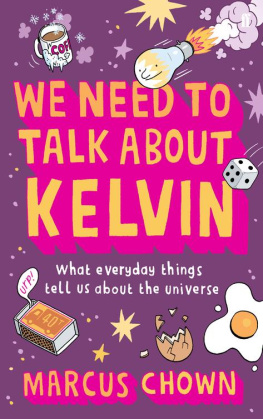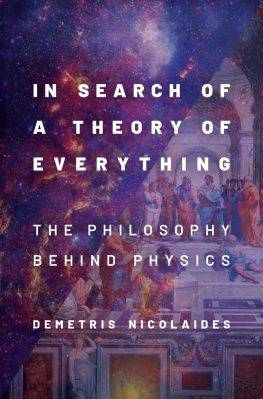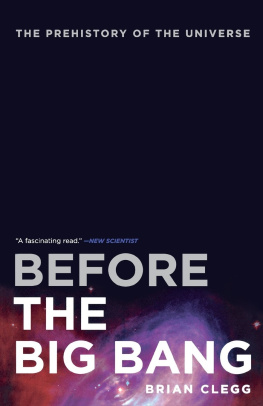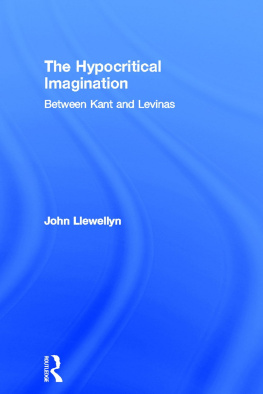ERZEUGT DURCH JUTOH - BITTE REGISTRIEREN SIE SICH, UM DIESE ZEILE ZU ENTFERNEN
ibidem -Press, Stuttgart
ERZEUGT DURCH JUTOH - BITTE REGISTRIEREN SIE SICH, UM DIESE ZEILE ZU ENTFERNEN
For Julia
ERZEUGT DURCH JUTOH - BITTE REGISTRIEREN SIE SICH, UM DIESE ZEILE ZU ENTFERNEN
Table of Contents
ERZEUGT DURCH JUTOH - BITTE REGISTRIEREN SIE SICH, UM DIESE ZEILE ZU ENTFERNEN
Preface
Exploring the nature of imagination and its role in our search for meaning is a philosophical act. To understand the imagination, we must look at what it makes. In science, philosophy, literature, and art, the imagination leaves artifacts in its wake. These artifacts express the truth, significance, and meaning we discover in the universe. But knowing these expressive artifacts is not enough if we want to understand the imagination. We also need to understand the significance of significance, the meaning of meaning, and the ways in which matter can matter, all of which depend on how we answer questions about what kind of universe we live in.
In this book I argue that many of our most valuable inquiries are acts of philosophical imagination, that the artifacts of the imagination make most sense in a universe that is meaningful as a whole, and that only a created universe has meaning as a whole. My arguments do not prove that the universe is meaningful as a whole. They only explore ways the imagination might be characterized were the universe to be meaningful as a whole. Apart from the assumption that the universe is created, some theories of the imagination make no sense whatsoever. But if the universe is created, these theories might illuminate the status and function of the imagination, along with the relationship between imagination and our experience of beauty, morality, metaphysics, and science.
I organize my argument around the concept of the poetic apriori, which is the idea that artifacts of the imagination can reveal as-yet unknown aspects of reality. It is the idea that the imagination can reveal reality through what it makes. The idea started out a bit tongue-in-cheek while I was writing a novel about Immanuel Kants servant, Martin Lampe. Lampe lived with a philosophical genius for forty years, until he was fired for reasons no one knows. He surely listened in on philosophical conversations and lectures, and no doubt he had the chance to snoop around Kants books-in-progress with relative freedom. Because that probably constitutes the longest tutelage in the history of Western philosophy, I needed to give Lampe at least one idea he could claim as his own: in the novel I gifted him with the idea of the poetic apriori. But the more I thought about the idea, the more I liked it. Lampe can still have it in the world of fiction, but I decided to see where the idea might go in the slightly less fictional world I call my life. To that end I have borrowed from scientists, artists, poets, and philosophers to illustrate how the idea of the poetic apriori might function in a theory of philosophical imagination. The first nine chapters gesture toward the relationships between imagination, intellect, and meaning that emerge through the operation of the poetic apriori. The discussion builds toward a final argument that the operation of the poetic apriori in the work of philosophical imagination is possible because of a deep structure in reality that is most fully revealed in the idea of the analogia entis.
Chapter one begins with an example of an Aristotelian frame for the relationship of the mind to the material and the immaterial aspects of the world. We are embodied creatures susceptible to many physically determined forces, and yet our minds can abstract forms from the physical shapes of things, and we can grasp immaterial meanings through the physical shapes of words and numbers. The ways our minds relate to material and immaterial parts of the world is important for understanding our peculiar form of philosophical imagination. It is also important for understanding the difference between the realms of meaning, freedom, and rationality, and the world of fully determined material causation investigated by the sciences. A robust view of the world as created makes sense of the idea that the forms of nature are readable by human beings, not because the forms are imposed by our minds but because the outward material world is informed by the immaterialby thought of the same sort that populates our own minds. If our imaginations are created by God, our minds can reach into the darkness of the unknown, trusting not merely in the light we carry within us but also in the wisdom, truth, and beauty of an in-formed creation.
The second chapter turns to the concept of analogy. Analogy, as an idea fostered among the ancient Greeks, matured into the idea of the analogia entis in Thomas Aquinass philosophical investigation. Thomas came to see that if creation is an effect of God, then a metaphysics of creation cannot say creation is wholly alien to God. But neither can it say creation is wholly like the creator. Because creation is both similar and dissimilar to God, creation must be a kind of analogy, the analogy of being. This idea acknowledges the similarity between God and creation, as well as the dissimilarity between them. Though the method of the analogia entis, we attempt to comprehend the whole from within the whole that comprehends us. Analogical philosophy discovers reality through lenses made in the philosophical imagination. It is revised as our consciousness of all that lies beyond our current knowledge and experience grows. Things light up in the fullness of being what they are, and in doing so they also point beyond themselves. This is analogical distance. It allows us to know creation as creation. Analogy always falls short, which is why the trajectory of philosophical work often arcs toward silent wonder. But even if the work leads us to silence before incomprehensible mystery, we are creatures who desire to know and to share what we discover, which are acts of philosophical imagination.
If the universe is created, philosophical imagination and the significance of its artifacts might be influenced by the way in which our imaginations relate to God. The first half of chapter three draws on several themes from the work of Thomas Raymond Kelly to illustrate this. At the center of Kellys philosophical work is the idea that our encounters with God shape our imaginations. Ones spiritual life impacts the growth of an imagination that aims to discover what is real. The second half of the chapter turns to Charles Peguy whose imaginative artifacts are a result of an imagination oriented in the way that Kelly suggests.
Expanding on the ideas in chapter three, chapter four examines the ways in which acts of love might impact the function of the imagination and the things it makes. Dante inhabited his imagination as a lover. He filled his poetry with images exemplifying a mind oriented toward divine significance in the universe. But because any image can become an idol, as Dante knew well, the argument turns to Bonaventure to explore how love can motivate and enable a kind of imaginative growth that resists both idolatry and philosophical stasis.
Chapter five looks at a very different way of framing philosophical imagination in a created universe developed in the work of Giambattista Vico. For Vico, there is a deep division between ways the imagination understands God and creation, and the ways the imagination understands things that are of human origin such as history and language. This part of the argument begins with Vicos theory of the imagination and its relationship to memory and then develops the theme of memory and its relationship to imagination in the works of Giordano Bruno and Giullo Camillo.

